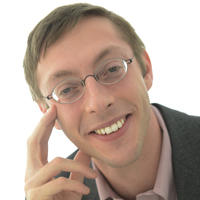
sgrote@wellesley.edu
(781) 283-2660
History
A.B., Harvard University; M.Phil., Cambridge University; M.A., Ph.D., University of California (Berkeley)
FND 204
Simon Grote
Associate Professor of HistoryIntellectual and cultural historian of early modern Europe.
I study the intellectual history of seventeenth- and eighteenth-century Europe, focusing on the Scottish and German Enlightenments. The topics touched by my research include political and economic thought, the natural sciences, universities and academic culture, and religion and its relationship to modernity.
My most recent projects include the book I finished in 2017, The Emergence of Modern Aesthetic Theory: Religion and Morality in Enlightenment Germany and Scotland (Cambridge: Cambridge University Press, 2017): an attempt to explain why early eighteenth- century Scotland and Germany witnessed an explosion of interest in theories of beauty and the arts. This was the moment when what we now call modern aesthetic theory was born. The new theories of beauty and the arts, I argue, grew out of ongoing debates about theology, moral philosophy, and natural law. While finishing this book, I began a project, now ongoing, on the concept of original sin in Enlightenment Europe, the centerpiece of which is a book-length study of the German theologian Joachim Lange (1670-1744). Working on these projects has often taken me to the library and archive of the Francke Foundations in Halle, where I have been a guest of the Interdisciplinary Center for Pietism Research (2016-2017) and an associate member of the Centre for Science Studies at the Leopoldina, the German National Academy of Sciences (2019-present).
Over the past several years, my research and teaching have been shaped by Wellesley College’s flourishing book studies community. In the company of colleagues on campus, and under the guidance of faculty at the Rare Book School at the University of Virginia, I have become more aware of the ways in which sound interpretation of texts requires understanding their material aspects. My own education in this area has been supported since 2014 by an Andrew W. Mellon Fellowship in Critical Bibliography from the Rare Book School; and the central role of rare books in several of the courses I teach has been made possible by the treasures of Wellesley’s Special Collections, curated by Ruth Rogers and Mariana Oller.
Other communities at Wellesley in which I have been active include the Long Eighteenth Century Working Group, the Newhouse Center for the Humanities, and the Program in Medieval and Renaissance Studies, of which I am currently the director.
My teaching includes courses on early modern Europe and early modern Germany, as well as courses that delve more deeply into topics in European intellectual and cultural history: the early history of economic thought, the Enlightenment, the history of science, and aspects of visual and material culture. My newest courses include a seminar on the many and diverse modes of understanding and promoting mental health in Western cultures from the end of the Middle Ages through the nineteenth century (HIST352: "Mental Health in European History") and a course, co-taught with Jacki Musacchio, on the history of epidemics (ARTH235/HIST235: "Art, History, Life, and Death: Epidemics in Early Modern Europe").
